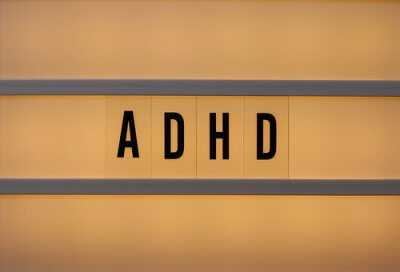How ADHD Affects Relationships: Tips for Couples to Thrive
By Dr Olena Edwards – Psychotherapist
ADHD, or Attention Deficit Hyperactivity Disorder, can significantly impact adult relationships, leading to misunderstandings, frustrations, and resentments. These challenges are often overlooked, even though they can leave individuals feeling judged, rejected, and lonely. In this post we explore practical strategies to help couples navigate the complexities of ADHD in their relationships.
Understanding ADHD in Relationships

By: Francesco
ADHD can cause various issues in relationships, particularly when it remains undiagnosed. Individuals with ADHD might feel micromanaged and criticised for their distractibility, impulsivity, disorganisation, procrastination, and lack of care. Despite their efforts, they may feel that nothing is enough to make their partner happy, leading to feelings of being unappreciated and disrespected. This often results in avoidance of their partner and conflict situations.
Conversely, partners of individuals with ADHD may feel they are in a relationship with another child, bearing the brunt of responsibility. This dynamic can lead to exhaustion, isolation and frustration as they deal with their partner’s impulsive behaviour, mood swings and forgetfulness.
Understanding ADHD, and separating symptoms from character can transform your relationship from struggling to thriving.
Tips for Transforming Your Relationship
Research and clinical practice have provided valuable insights into managing ADHD in relationships. Here are some key strategies to help transform your relationship for the better:
- Gain Understanding: Both partners should educate themselves about ADHD to better understand its impact on their relationship.
- Acknowledge and Manage ADHD: The partner with ADHD must acknowledge their diagnosis and take responsibility for managing it to minimise its negative impact.
- Seperate Symptoms from Character: Non-ADHD partners should distinguish their partners symptoms from their character traits, recognising impulsivity and forgetfulness as symptoms of ADHD rather than personal flaws.
- Use Soft Start-Ups: Communicate frustrations and requests using soft start-ups rather then harsh ones to avoid triggering defensiveness and withdrawal.
Real-Life Couples Example
 In my practice, I worked with a couple where the wife ordered a poster saying, “You have ADHD,” to remind her husband to be more focused. Through therapy, they explored his ADHD and by the end, she ordered a new poster that said, “Darling, I love you. I know you have ADHD, and I love you even more.” This simple change symbolised their journey towards understanding and acceptance.
In my practice, I worked with a couple where the wife ordered a poster saying, “You have ADHD,” to remind her husband to be more focused. Through therapy, they explored his ADHD and by the end, she ordered a new poster that said, “Darling, I love you. I know you have ADHD, and I love you even more.” This simple change symbolised their journey towards understanding and acceptance.
Communication Tips
To improve communication, non-ADHD partners should be mindful of their approach:
- Avoid harsh start-ups such as, “I wish you hadn’t…,” or “Every time I ask, you never…”
- Use soft start-ups like, “Would you mind…,” or “I notice…”.
Harsh approaches can lead to defensiveness or withdrawal. Instead, focus on empathy and cooperation.
ADHD partners should aim to listen actively, clarify points, and ensure they fully understand their partner’s needs.
 Conclusion
Conclusion
ADHD can pose significant challenges in relationships, but with understanding, empathy, and the right strategies, it is possible to create a thriving partnership. Work together as a team, and remember that empathy and effective communication are key to overcoming the hurdles posed by ADHD.
_______
About Dr. Olena Edwards

Dr. Olena Edwards is a highly experienced Integrative Humanistic Psychotherapist with over 20 years in the field. She is fully accredited with the BACP and holds membership with The British Society of Sexual Medicine. Dr. Edwards specialises in depression, anxiety, relationships, trauma, ADHD, and more, and works with adolescents, adults, and couples.
If you found this post helpful, consider sharing it with others who might benefit from these insights. For more information on how to get an adult ADHD diagnosis or if you or your partner are looking for ADHD support, visit Harley Therapy.






